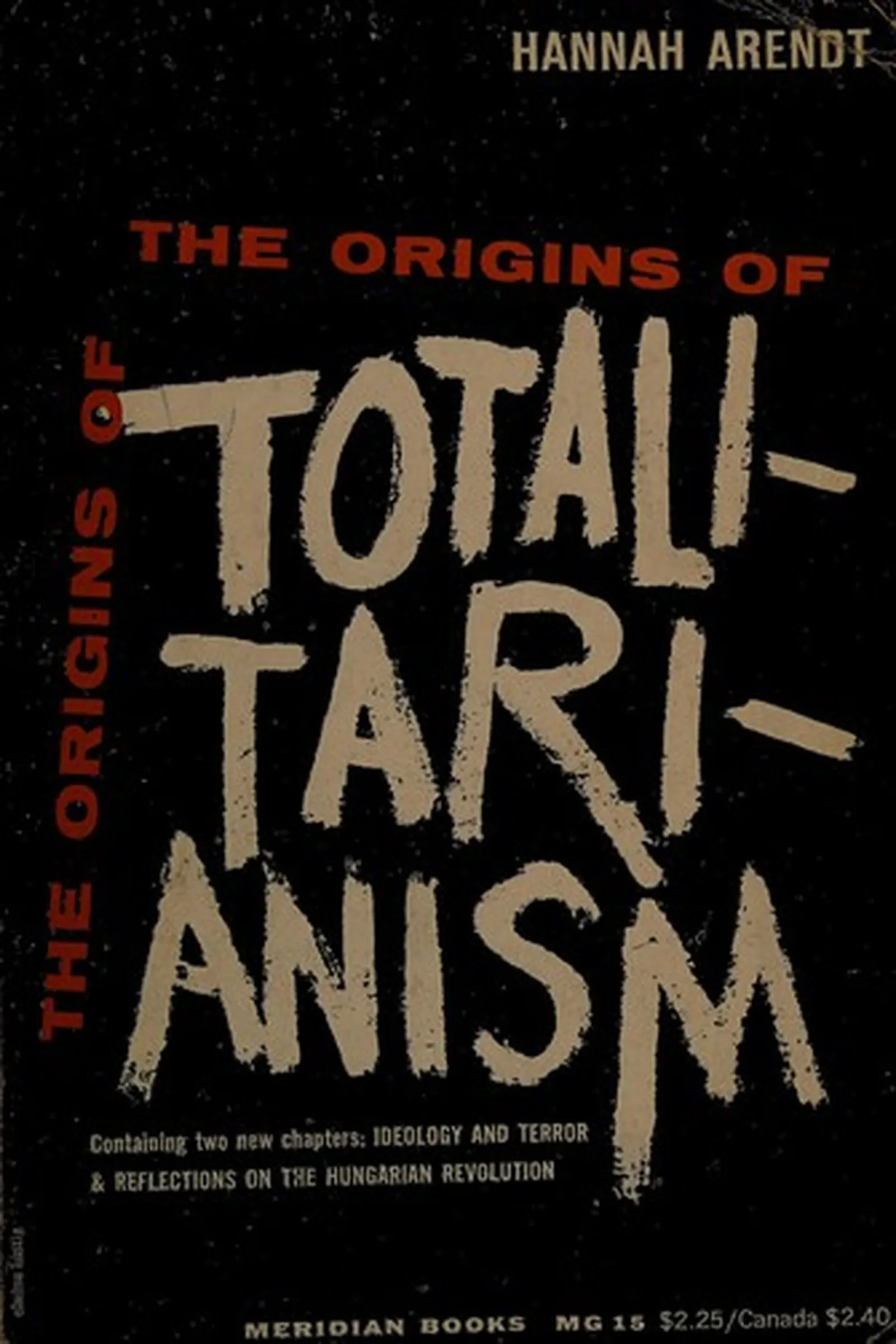The Origins of Totalitarianism, Hannah Arendt, 1951
- Author: Hannah Arendt
- Genre: Politics
- Publisher: Harcourt
- Publication Year: 1951
- Pages: 224
- Format: Paperback
- Language: English
- ISBN: 978-0156701532
- Rating: 4,3 ★★★★★
The Origins of Totalitarianism Review
About
Hannah Arendt’s The Origins of Totalitarianism (1951) is a monumental work of political thought—part history, part moral diagnosis. Written in the aftermath of World War II, it dissects the forces that produced both Nazism and Stalinism. Arendt doesn’t just chronicle events; she seeks to understand how ordinary politics collapses into terror. The book remains one of the most chillingly relevant analyses of power in the modern age.
Overview
Arendt traces totalitarianism to three intertwined roots: antisemitism, imperialism, and the breakdown of traditional social structures. She argues that totalitarian regimes don’t merely repress—they reshape reality itself, erasing truth and individuality. Her prose is methodical but passionate, combining historical evidence with philosophical depth. What makes the work extraordinary is her refusal to see evil as monstrous—it’s human, banal, and preventable.
Summary
(light spoilers) The first sections analyze Europe’s late-19th-century imperial projects and the rise of racial ideology. Arendt then examines how propaganda and loneliness become tools of domination, turning people into interchangeable parts of a political machine. The final section, on the mechanics of terror, reads like both history and prophecy: totalitarianism thrives on atomized societies where facts lose meaning. Arendt’s insight—that ideology replaces thinking with obedience—remains a warning for every generation that treats power as truth.
Key Themes / Main Ideas
• The erosion of truth as a political act.
• Loneliness and mass manipulation.
• Ideology as the replacement for reality.
• Evil as systemic, not personal.
• The fragility of democratic life.
Strengths and Weaknesses
• Strengths — Profound, prophetic, morally courageous.
• Strengths — Merges scholarship with ethical urgency.
• Weaknesses — Demanding prose and heavy subject matter.
• Weaknesses — Arendt’s abstractions can distance the reader from emotion.
Reviewed with focus on themes, audience, and takeaways — Hannah Arendt
| pa_author | Hannah Arendt |
|---|---|
| ISBN | 978-2-259-45559-7 |
| pa_year | 1969 |
| Pages | 541 |
| Language | English |







